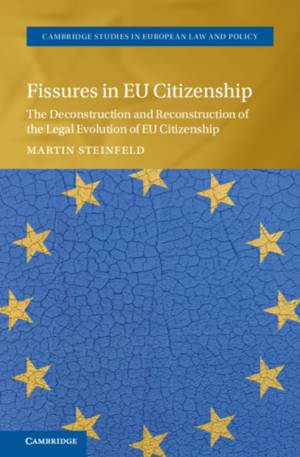
- Afhalen na 1 uur in een winkel met voorraad
- Gratis thuislevering in België vanaf € 30
- Ruim aanbod met 7 miljoen producten
- Afhalen na 1 uur in een winkel met voorraad
- Gratis thuislevering in België vanaf € 30
- Ruim aanbod met 7 miljoen producten
Zoeken
Fissures in EU Citizenship
The Deconstruction and Reconstruction of the Legal Evolution of EU Citizenship
Martin Steinfeld
€ 198,95
+ 397 punten
Omschrijving
This book argues that core concepts in EU citizenship law are riddled with latent fissures traceable back to the earliest case law on free movement of persons, and that later developments simply compounded such defects. By looking at these defects, not only could Brexit have been predicted, but it could also have been foreseen that unchecked problems with EU citizenship would potentially lead to its eventual dismantling during an era of widespread populism and considerable challenges to further integration. Using a critical constructivist approach, the author painstakingly outlines the 'temple' of citizenship from its foundations upwards, and offers a deconstruction of concepts such as 'worker', the role of non-economic actors, the principle of equal treatment, and utterances of citizenship. In identifying inherent fissures in the concept of solidarity and post national identification, this book poses critical questions and argues that we need to reconstruct EU citizenship from the bottom up.
Specificaties
Betrokkenen
- Auteur(s):
- Uitgeverij:
Inhoud
- Aantal bladzijden:
- 414
- Taal:
- Engels
- Reeks:
Eigenschappen
- Productcode (EAN):
- 9781108490894
- Verschijningsdatum:
- 6/01/2022
- Uitvoering:
- Hardcover
- Formaat:
- Genaaid
- Afmetingen:
- 152 mm x 229 mm
- Gewicht:
- 721 g

Alleen bij Standaard Boekhandel
+ 397 punten op je klantenkaart van Standaard Boekhandel
Beoordelingen
We publiceren alleen reviews die voldoen aan de voorwaarden voor reviews. Bekijk onze voorwaarden voor reviews.








